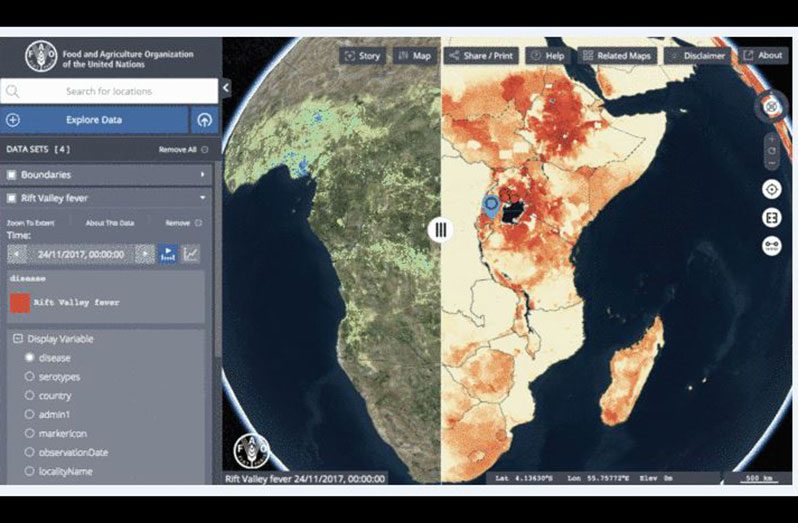–FAO joins the Digital Public Goods Alliance
(FAO) The Food and Agriculture Organization of the United Nations (FAO) has become a member of the Digital Public Goods Alliance.
This underscores FAO’s commitment to the development and championing of digital public goods that will help achieve sustainable agri-food systems and contribute to the Sustainable Development Goals (SDGs).
The Digital Public Goods Alliance (DPGA) is a multi-stakeholder initiative with a mission to accelerate the attainment of the SDGs in low- and middle-income countries by facilitating the discovery, development, use of, and investment in digital public goods. Digital public goods (DPGs) are open-source software, open data, open artificial intelligence (AI) models, open standards, and open content that help attain the SDGs.
“This membership marks a step further in FAO’s commitment to unleashing the potential of digital agriculture by ensuring inclusivity and narrowing the digital divide between different countries and regions through affordable access to digital technologies, digital literacy and digital public goods,” FAO Chief Economist Máximo Torero said.
MEMBERSHIP MATTERS
FAO has made digital technologies a cornerstone of its work aimed at transforming agricultural practices and empowering rural households, young farmers and entrepreneurs.
Through its DPGA membership, FAO and its partners stand to benefit from the DPGA’s core activities. These include stewarding the DPG Standard used to create alignment and understanding of DPGs, and the DPG Registry, a place where DPGs can be better discovered – including FAO’s own digital public goods.
Being a member of the DPGA means featuring the work of FAO within the DPG Roadmap, a coordination, alignment, engagement, and communication tool capturing stakeholder activities that advance digital public goods.
This will include FAO’s efforts to positively influence the food and agriculture ecosystem towards creating and using digital public goods, identify existing and potential DPGs within the FAO Digital Portfolio, and create a FAO Digital Public Goods Framework. Additionally, FAO will co-chair a new community of practice focused on food security, which will produce a knowledge product to guide countries and digital practitioners.
This engagement is an important contribution to the UN Secretary-General’s Roadmap for Digital Cooperation.
Cooperation between FAO and the DPGA will contribute to the achievement of some SDGs, notably SDG One (no poverty), Nine (industry, innovation and infrastructure), and 17 (partnerships to achieve the goal).
FAO’S WORK IN THE DIGITAL FIELD
FAO has recognised the importance of the digital transformation of the agri-food sector, leading to the creation of a Digital Agriculture Programme Priority Area within FAO’s Strategic Framework 2022-31.
FAO aims to “massify” digital benefits to make sure that no one is left behind. It does this by promoting the use and adoption of digital technologies and by promoting a policy agenda and public investments.
The DPGA and FAO have collaborated successfully in the past, and the DPGA registry already includes four FAO digital public goods: the Hand-in-Hand Geospatial Platform, the FAO Digital Services Portfolio, the Water Productivity Open Access Database WAPOR, and Open FORIS.
FAO has engaged in two communities of practice run by the DPGA on the topics of Climate Services and Digital Financial Inclusion and collaborated to ensure FAO’s digital products are digital public goods.
The DPGA also has a successful record of engagement with governments and other UN agencies and is currently co-hosted by the United Nations Development Programme (UNDP), United Nations Children’s Fund (UNICEF), and the Norwegian Agency for Development Cooperation (NORAD).




.png)









